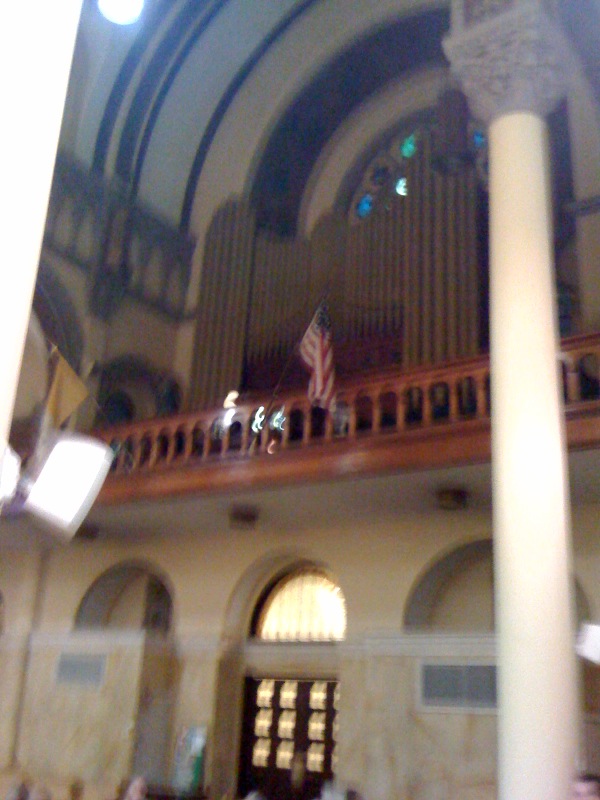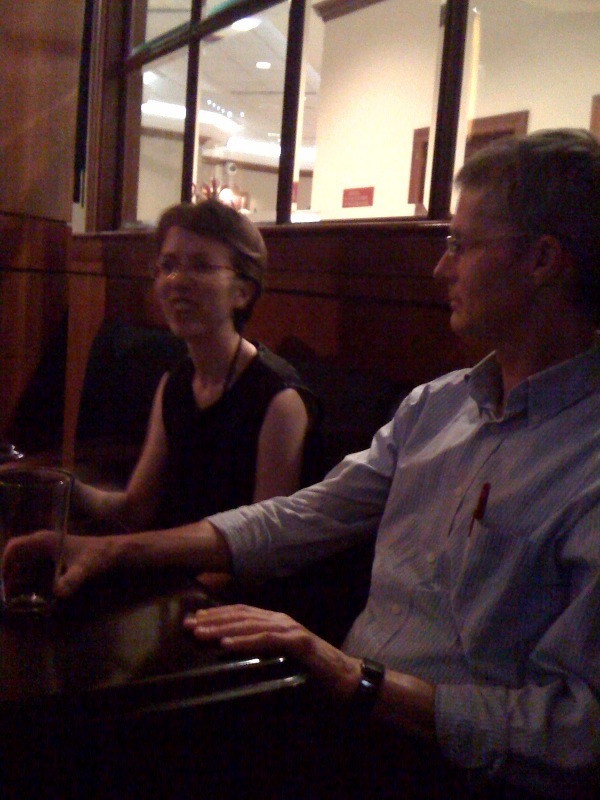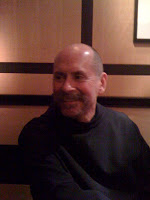Isabelle Demers played a recital last night at the Church of the Epiphany in Pittsburgh for the Sacred Music Colloquium XX. Her program was wide ranging, from Bach to Messiaen, but this PhD student at Julliard provided much more than a perfect performance; she brought to that technical perfection a rare spirit of adventure, daring, and deep conviction, seeming to manufacture whole worlds before our eyes and spiritual imaginations. It’s as if she took it upon herself to re-establish, this night and once and for all, that the organ remains today what it was in Machaut’s time: the reigning king of all instruments. She fully succeeded, prompting several spontaneous bursts of applause and an extended standing ovation at the end.
Here was her program.
- J.S. Bach (1685-1750): Prelude in E♭ major BWV 552/1
- Max Reger (1873-1916): Chorale-Preludes op. 67
- 1: Allein Gott in der Höh sei Ehr
- 5: Christus, der ist mein Leben
- 2: Alles ist an Gottes Segen
- 20: Jesus ist kommen, Grund ewiger Freude
- 4: Aus meines Herzens Grunde
- 39: Straf mich nicht in deinem Zorn
- 42: Von Himmel hoch, da komm ich her
- J.S. Bach (1685-1750): Fugue in E♭ major BWV 552/2
- Siegfried Karg-Elert (1877-1933): Symphonic Chorale on “Jesu meine Freude”
- Introduzione (Inferno)
- Canzone
- Fuga con Corale
- Herbert Howells (1893-1982): Psalm-Prelude op. 32/2 “But the meek shall inherit the earth; and shall delight themselves in the abundance of peace.”
- Olivier Messiaen (1910-1992): Dieu parmi nous
Any program that ends with Messiaen will always exists in a state of extended suspension and excitement for what awaits. His music has this astounding capacity to conjure up images and visions. His music has had presence at the colloquium over the last five or so years, given his status as the leading Catholic musician (and some would say theologian!) of the 20th century. The performance of Dieu parmi nous was indeed dazzling and, following the recital, listeners enjoy sharing their impressions.
A note on Isabelle: she is a delightful person, unassuming and personable in every way. She was there to greet people at the front entrance when people arrived and was downstairs after the concert to thank everyone for coming. It did not go unnoticed that she did not carry any sheet music at all with her to the loft. She was just one small-framed person alone who did all of this with a mighty instrument, her hands, her feet, her mind, and her heart.
Once again, please forgive my iPhone images. Here is the loft before the concert and the people gathered, awaiting the first notes.
And here she is following the recital, sitting with Wilko Brouwers and talking with attendees until late in the night.





.jpg)
.jpg)
.jpg)
.jpg)


